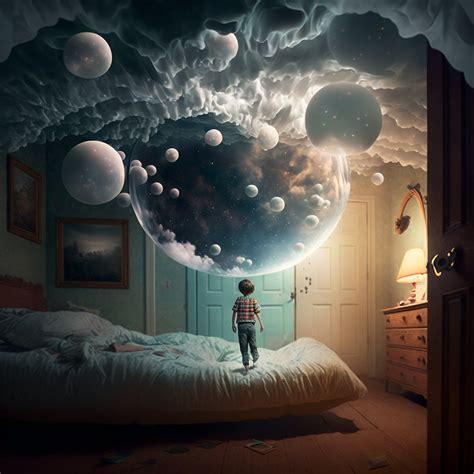Picture flying above the sky, swimming underwater, or strolling on Mars—while you're sleeping. That sounds like magic, doesn't it? Well, it actually exists, and it's referred to as lucid dreaming. It's a special condition when you're dreaming, but you're aware that you're dreaming—and sometimes even get to manipulate what goes on.
What Is Lucid Dreaming?
Lucid dreaming is when one realizes that they are dreaming but remains asleep. It tends to occur during REM sleep, the period of sleep where most intense dreams occur.
In other instances, individuals can even control their dream landscape, characters, and plot—such as being the author, director, and lead actor of your own film.
How Does It Work?
Researchers think that lucid dreaming engages sections of the brain that are normally "offline" while sleeping. During a lucid dream:
The prefrontal cortex, which handles logic and decision-making, is more active.
You develop self-awareness, as you do in the real world.
Your brain generates an ultra-realistic world, but you know it's all make-believe.
Can Anyone Do It?
Yes, but it requires practice. Some popular techniques include:
Reality checks: Repeat to yourself "Am I dreaming?" throughout the day. It creates awareness.
Dream journaling: Record dreams in the morning. It enhances memory and dream pattern awareness.
Wake-back-to-bed (WBTB): Wake up at 5–6 hours of sleep, remain awake for a short period, and then return to sleep with the goal of lucid dreaming.
Mnemonic Induction of Lucid Dreams (MILD): As you drift to sleep, repeat the phrase "I will know I'm dreaming."
Why Try It?
Lucid dreaming isn't cool just because it sounds cool—it has actual benefits:
Beating nightmares by being in charge
Enhancing creativity through rich dreamscapes
Enhancing problem-solving by trying out solutions in a dream environment
Rehearsing skills, such as public speaking or sports, in the mind
Discovering your subconscious in a safe, dream-based environment
Is It Safe?
Yes, for the average person. Though, it may cause sleep disturbance or intense dreams. It needs to be balanced with good sleep hygiene.
Conclusion
Lucid dreaming leads to one of the richest virtual realities ever—your own mind. With patience and practice, you can travel in imaginary realms, conquer phobias, and unleash creativity—all while sleeping. So the next time you shut your eyes, ask yourself: What if you could wake up within your dream?

